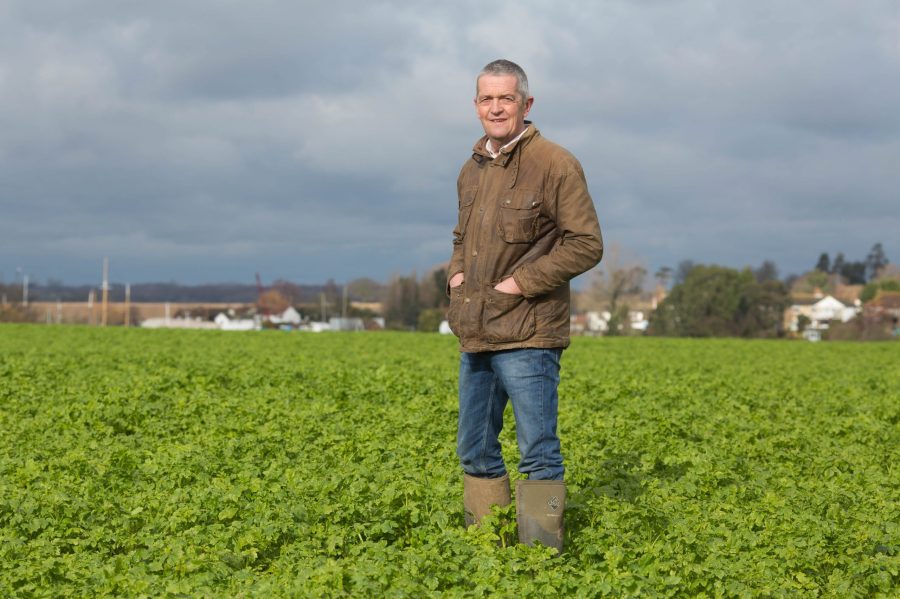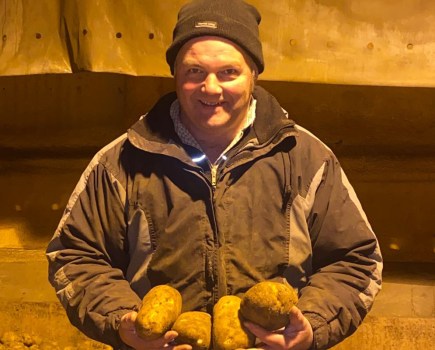By Guy Smith
From the perspective of a combinable crops business, a key weakness in Red Tractor assurance would seem to be how little of what leaves my farm ends up with a Red Tractor logo on it.
The appearance of the logo on the supermarket shelf is key rational of the assurance concept. It assures the customer that what they’re buying is produced to high standards from farm to fork. Hence if the logo gets lost somewhere in the food chain, then the purpose is also lost.
Take oilseed rape, for example. UK crushers insist that if I want to sell my OSR to them I have to be Red Tractor assured. So, given these same crushers dominate the market I sell into, I duly go through the annual assurance check which, to be honest, isn’t particularly burdensome.
Things like wood pigeons and cabbage stem flea beetle are an infinitely greater hinderance to OSR production for me than a Red Tractor inspection. But, it’s when my OSR leaves the farm and arrives at Tilbury that an overwhelming reality starts to hit home.
Once it’s tipped, those same crushers, who seemed so fanatical about the requirement for assurance before the stuff arrived at their intake, suddenly seem to lose all interest to the point that Red Tractor assurance is dismissed with seeming contempt.
As my OSR disappears through the intake grill at the tip, so too its assured identity disappears like a rabbit down a rabbit hole never to be seen again. Once it’s out of my hands, no attempt whatsoever is made to segregate it from non-assured imported canola, and thereby the chance to promote my assurance credentials to end consumers is gone.
This particularly hits home when, as a cafe owner, I buy four 20 litre drums of rapeseed oil for our kitchen friers every week. As an OSR grower who owns a café, I’d welcome the chance to spread a provenance message to my customers that could be as wholesome and golden as the oil their chips are fried in, were it guaranteed to be from British farms.
At the cafe we proudly tell our customers that the bacon and the eggs on their breakfast plates are British and produced to high British farm standards as checked by traceable assurance. So why in heavens name can’t I say the same thing about the rapeseed oil that’s used to fry those same bacon and eggs?
And let’s be clear as to who’s responsible – it’s not the wholesalers who sell me the oil, it’s the crushers who supply them. The unpalatable fact is that while the crushers are only too ready to insist the farmer goes to the expense of jumping through the assurance hoops, they can’t be bothered to return the compliment at their part of the chain because it’s too much trouble to keep it separate from crop grown with no assurance. To add salt to the wound, the crushers know full well that imported OSR is grown with a long list of pesticides banned in the UK.
So, given the current review now being undertaken, if I had one plea to the powers at Red Tractor it would be to check that those processors who demand assurance from their grower suppliers make some attempt to apply those demands on themselves.
There’s an important financial consideration here in that Red Tractor is financed by two streams – the growers and those who display the logo on their produce. The non-contributing flies in this otherwise happy ointment are those who pay nothing by wilfully breaking the assurance chain.
Red Tractor has the power to end this processor hypocrisy that makes a mockery of assurance. They should treat their farmer customers with respect and use this power.
This article was taken from the latest issue of CPM. For more articles like this, subscribe here.
Sign up for Crop Production Magazine’s FREE e-newsletter here.




